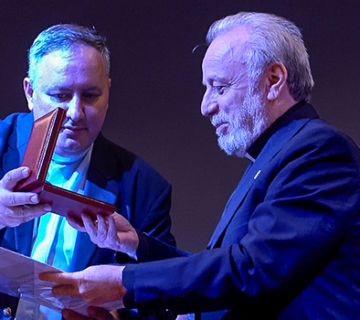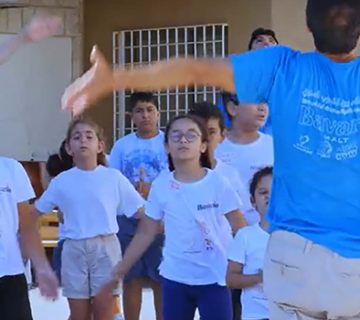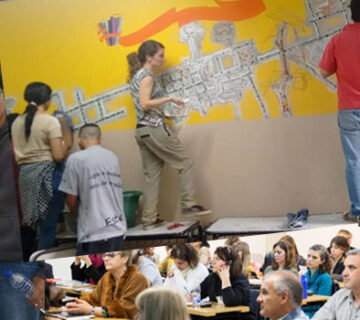 The Political Movement for Unity (MPPU) has been active for several years in Argentina in order to disseminate the fraternity dimension in the heart of the life of political parties, as is done in other countries where the movement is present. Juan José Pfeifauf (of the “Frente Para la Victoria” Party) and Pilar Goldmann (of the “GEN/Generacion para un Encuentro Nacional” Party), are two youths who arrived on a visit to Rio Grande (Tierra del Fuego, Argentina), the most southern capital in the world.
The Political Movement for Unity (MPPU) has been active for several years in Argentina in order to disseminate the fraternity dimension in the heart of the life of political parties, as is done in other countries where the movement is present. Juan José Pfeifauf (of the “Frente Para la Victoria” Party) and Pilar Goldmann (of the “GEN/Generacion para un Encuentro Nacional” Party), are two youths who arrived on a visit to Rio Grande (Tierra del Fuego, Argentina), the most southern capital in the world.
Militant in two different political parties, they wanted to put on record that to inspire oneself by fraternity means “putting this idea in concrete action amongst the different political sides, by exercising empathy towards the other, with humility, knowing that nobody possesses the absolute truth about any project, and starting to recognise in the other a valid and necessary interlocutor.”
Their visit forms part of the follow up of the local School of political formation that holds its lessons regularly every Saturday. They themselves have followed the MPPU training at La Plata (Buenos Aires). Now Pilar is a tutor at a centre at San Miguel del Monte, in the province of Buenos Aires, where she has been encouraged to contest as candidate for the commune council in the last political elections.
About participation in active politics by youths, Pilar’s impression is that “from the years in the nineties up to today, in Argentina, we have seen a growth in political commitment, even if we cannot yet say that 100% of youths are interested in it.” But youths should not be considered only as subjects to whom to refer some occasional projects: “youths must become the main actors in the public realm. The renewal of politics passes through here.”
The Mppu/Argentina, that draws its inspiration from the principles of fraternity inherent in the proposal of the spirituality of Chiara Lubich, is 10 years old in 2011. It was formed on the occasion of the grave economic crisis that gripped the region in that unforgettable year, causing an increase in poverty in society. It was a moment which saw a real divorce between the people and the political class, a divorce that only recently seems to be recomposing.
Pilar relates that, on the premise of that crisis, some persons animated with the spirituality of unity, took on the commitment to give birth to the Centres of social and political formation, “to seek to give an answer, to imprint a reversal of route, aware of the necessity to reconstruct the basis of the rapport between society and the institutions; not only, but also to diffuse seeds of dialogue and trace a common way.”
Today we can say that we have come a long way and hundreds of young Argentinians have been to these centres. A “capital” now mature, ready to contribute to the development of the South American country: the commitment which they feel to bring about fraternity in politics, understood as service.
Presented by Daniela Ropelato (from extracts published in the Diario El Sureno, 16th November 2011- our translation)


 Italiano
Italiano Español
Español Français
Français Português
Português


